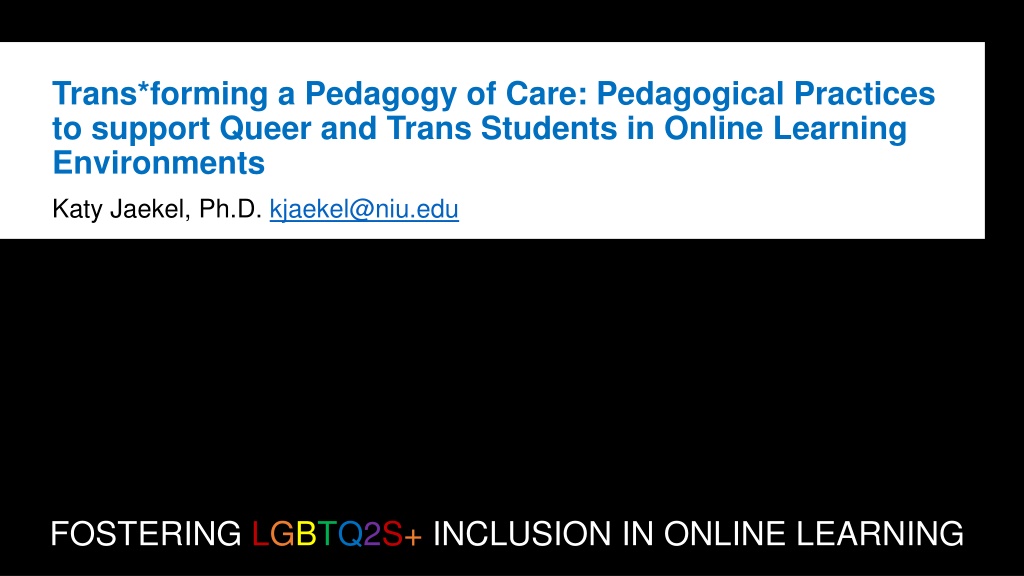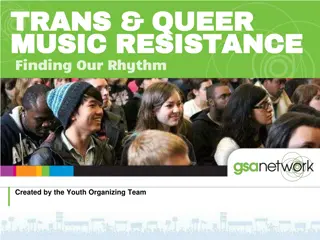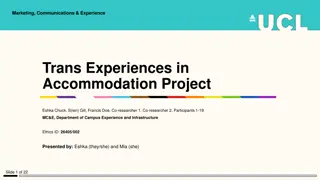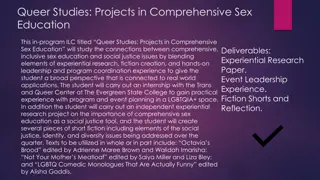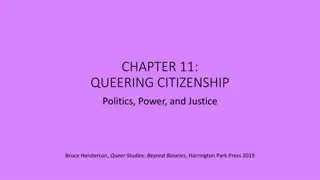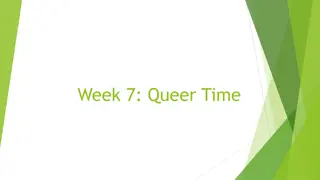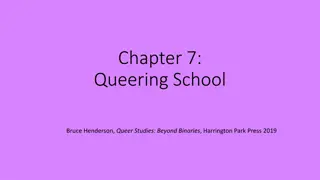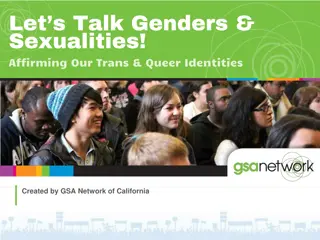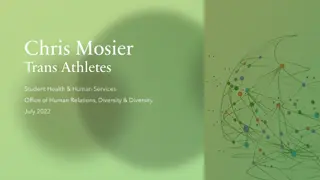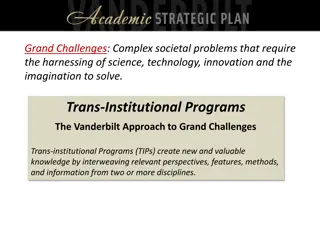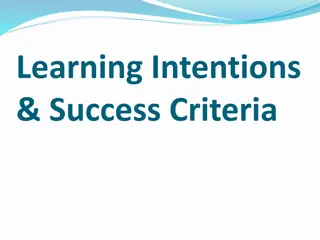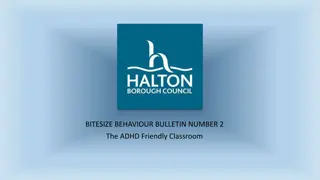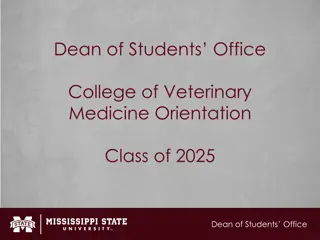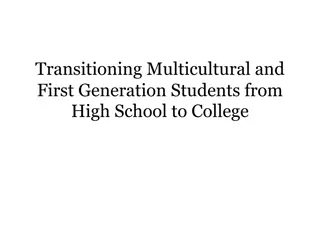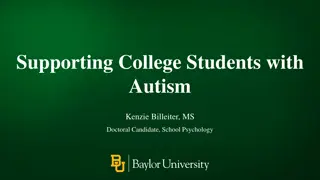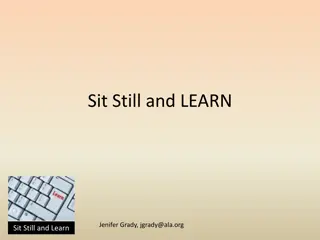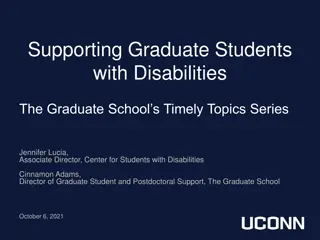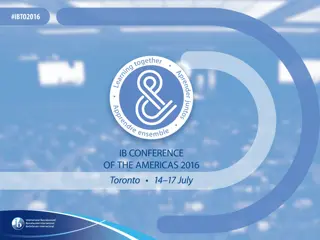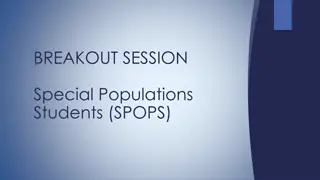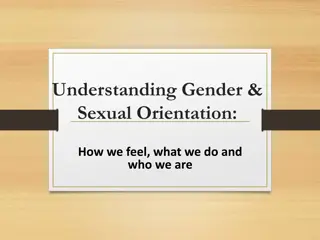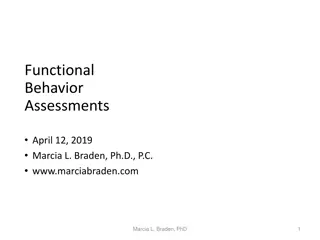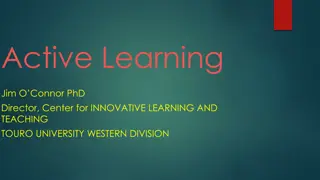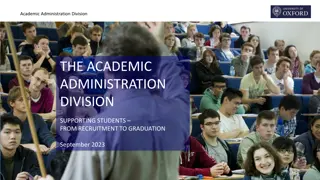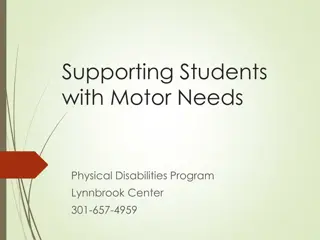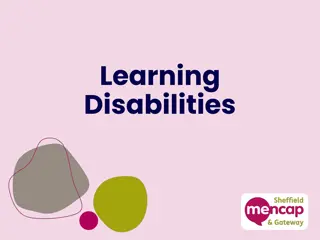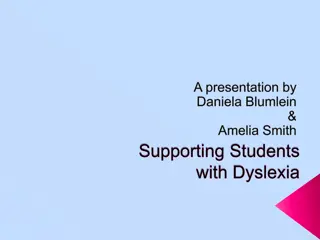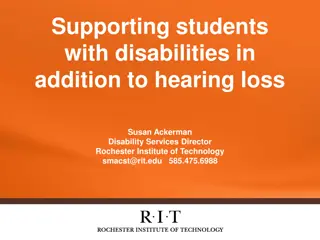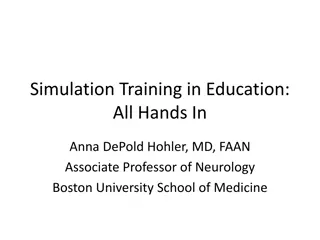Supporting Queer and Trans Students in Online Learning
Embracing a pedagogy of care can empower educators to create inclusive online environments for LGBTQ2S+ learners. By recognizing the unique challenges faced by these students, online learning can offer new possibilities for participation and identity construction. Through flexible scheduling, agency over self-representation, and virtual identity construction, online education can provide pathways for inclusion and empowerment, challenging traditional teaching norms.
Download Presentation

Please find below an Image/Link to download the presentation.
The content on the website is provided AS IS for your information and personal use only. It may not be sold, licensed, or shared on other websites without obtaining consent from the author. Download presentation by click this link. If you encounter any issues during the download, it is possible that the publisher has removed the file from their server.
E N D
Presentation Transcript
Trans*forming a Pedagogy of Care: Pedagogical Practices to support Queer and Trans Students in Online Learning Environments Katy Jaekel, Ph.D. kjaekel@niu.edu FOSTERING LGBTQ2S+ INCLUSION IN ONLINE LEARNING
Pedagogy of Care in Online Environments Given the critique of Noddings (1984/2003) notion of ethics of care, and given the importance of locating and engaging in our pedagogy within our current social context, we have an opportunity to transform in ways that we have not yet considered In so many ways, traditional notions of how we teach and learn are not emancipatory Online environments can afford educators and students possibility and pathways forward for inclusion While we focus in on the constraints of online learning (relationships can be difficult to build online, not seeing and not always being able to gauge reactions, engagement, and meeting in person can be lonely, difficult, and isolating), for LGBTQ2S+ learners, it may provide possibly and ways to participate do not and/or cannot occur in the face-to-face settings
LGBTQ2S+ Learners Experiences and Navigating Experiences Experiences Experiencing chilly campus and classroom climates and lack of inclusive policy (Goldberg, Beemyn, & Smith, 2019) Access to inclusive housing (Nicolazzo, Marine, & Wagner, 2018). Issues with access to health care (Renn, 2017) Access to spaces that are highly gendered (restrooms, locker rooms) (Singh, Meng, & Hansen, 2013) Changing names and using pronouns (Rankin & Beemyn, 2012 Navigating Experiences Dropping classes (Nicolazzo, 2017) Taking large lecture classes (Nicolazzo, 2017; Jaekel, 2020) Enrolling in online courses (Nicolazzo, 2017; Jaekel, 2020)
Possibilities in Online Learning Possibilities In some cases things like time and specific location of where and when learning is scheduled to happen can be more fluid and flexible In some cases, the strict hierarchy of how the act of teaching and learning occurs (educator at the front of the room, the uses of the banking model, control over space and curriculum) can be pushed back upon In some cases (and depending on LMSs) students may be able to name themselves, have agency over how they are seen and not seen, and construct their identity in virtual settings that aren t possible in other spaces
Engaging in Trans*forming a Pedagogy of Care While online education provides possibly for different forms of engagement, it is also critical that pedagogy, the curriculum, teaching methods, and other aspects be transformed. Online education gives us this flexibility and, in some ways, permission to do things differently Our care for these students must consider things like their environment, levels of support they are experiencing (and not experiencing), as well as their labor and exhaustion they experience
Engaging in Trans*formational Care Educating Self Have you read materials that discuss needs, concerns, and/or strategies that support queer and trans students? Be thoughtful about things like labor. In so many cases, information and questions you have can simply be Googled rather than having a student answer your questions and explain concepts to you about the LGBTQ2S+ community, topics, and issues Policies and Classroom Management Providing welcoming policies in the course is a great first start Enacting those policies is key When issues arise address them Providing opportunity for learners to self-identify, share pronouns and proper names is important But your care and pedagogy needs to go further than that
Engaging in Trans*formational Care Curriculum Have you transformed your curriculum with these students in mind? Have you engaged in care that provides these learners with ways to connect, engage, and see themselves in the course material? Do your assignments enhance and/or hinder learners needs and take into consideration their lived realities? How can both you and students share in the responsibility of co- constructing course curriculum? Who does the readings, assignments, and course material center? How can you share power and agency in your classroom?
References Goldberg, A. E., Beemyn, G., & Smith, J. Z. (2019). What is needed, what is valued: Trans students perspectives on trans-inclusive policies and practices in higher education. Journal of Educational and Psychological Consultation, 29(1), 27-67. Nicolazzo, Z. (2017). Trans* in college: Transgender students strategies for navigating campus life and the institutional politics of inclusion. Sterling, VA: Stylus. Nicolazzo, Z., Marine, S. B., & Wagner, R. (2018). From Best to Intentional Practices: Reimagining Implementation of Gender-Inclusive Housing. Journal of Student Affairs Research and Practice, 1- 12. Singh, A. A., Meng, S., & Hansen, A. (2013). It's already hard enough being a student : Developing affirming college environments for trans youth. Journal of LGBT Youth, 10(3), 208-223. Rankin, S., & Beemyn, G. (2012). Beyond a binary: The lives of gender nonconforming youth. About Campus, 17(4), 2-10. Renn, K. (2017). LGBTQ students on campus: Issues and opportunities for higher education leaders. Higher Education Today.
